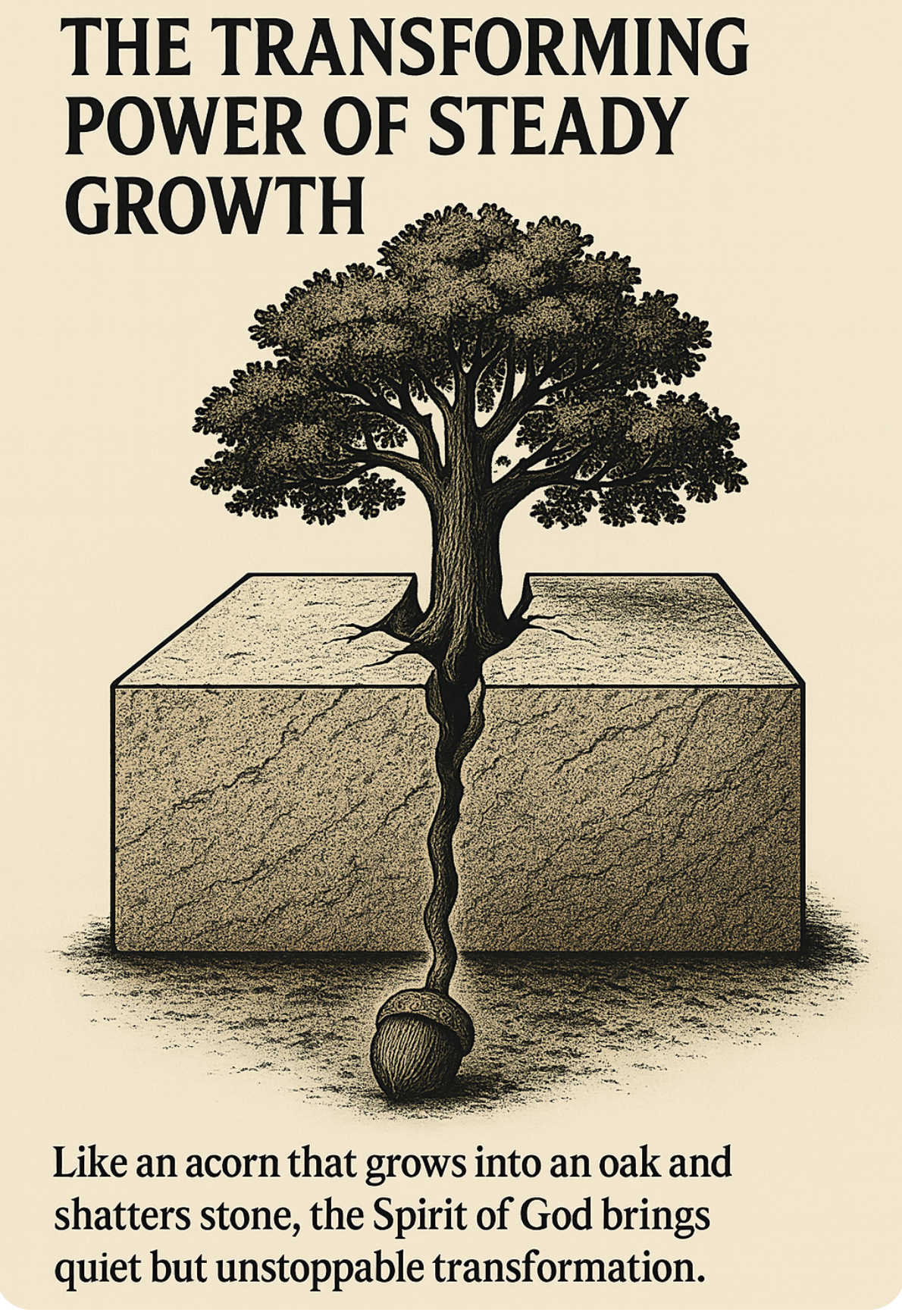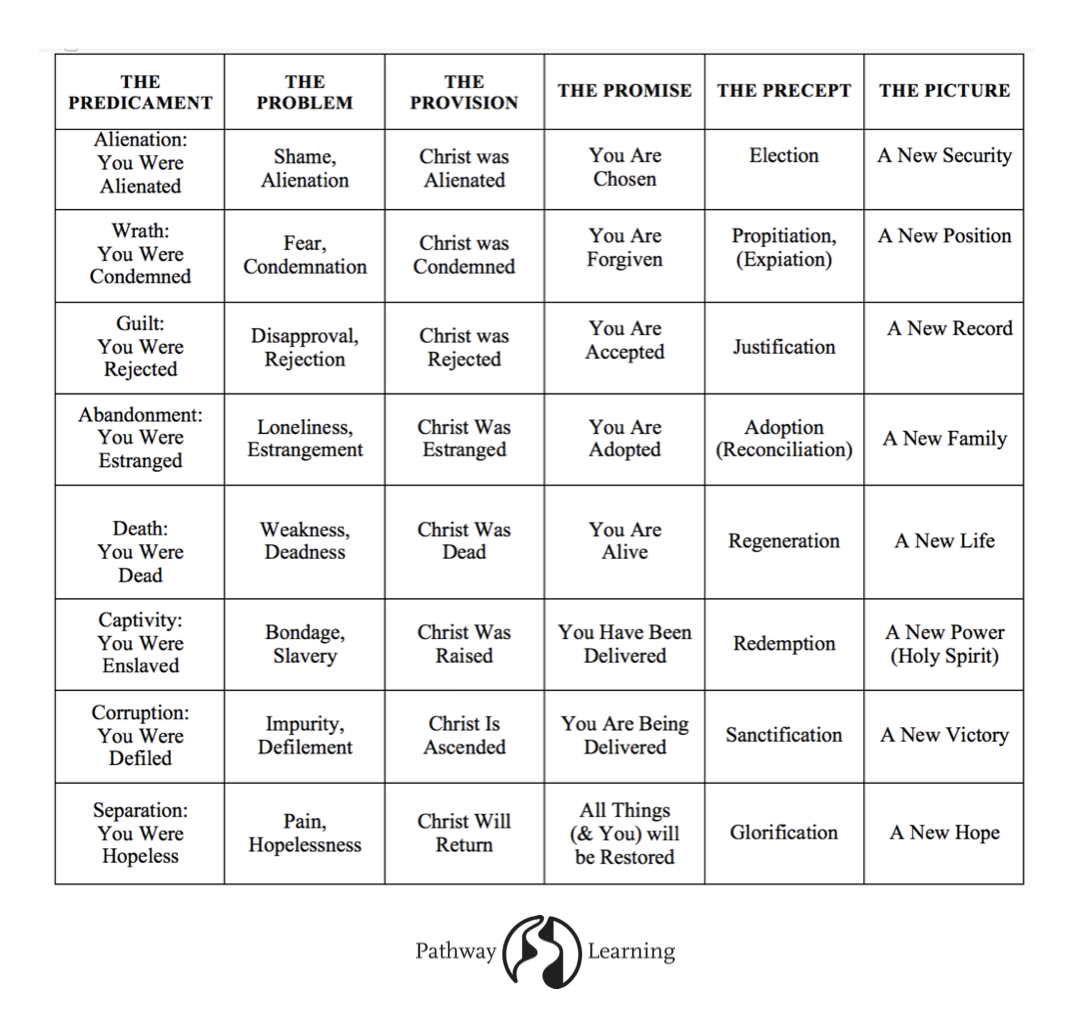What Should I Do When I Keep Failing in My Struggle With Sin?
Learn the Transforming Power of Steady Growth
By Steve Childers
Editor’s Note: This article is adapted from Steve Childers’ answer to a church leader in the persecuted church in China during a recent 30-hour online, interactive Pathway Learning Spiritual Formation course. For the past four years, this course has been taught annually to equip church planters and leaders in East Asia. Few things are more discouraging than repeatedly stumbling in the same sins. One Christian leader in the course asked Steve directly:
“What should I do when I keep failing in my struggle against sin?”
This is an excellent question because it touches the very core of what the Bible teaches about how we are to live the Christian life. If I could sum up the Bible’s answer in one sentence, it would be something like this: Keep drawing nearer to God in obedience by going deeper in repentance and faith in Christ with others. Or, to put it more simply: Don’t give up! Keep going deeper with others.
Don’t Give Up
First, don’t give up! Persevere even when no results are visible—especially then. One of Satan’s greatest strategies is to persuade you that lasting spiritual growth is impossible so that you stop pursuing it. But he knows that perseverance in the face of hardship—especially when there are no tangible results—is one of God’s most powerful tools for deepening your union with Christ. Remember what you’ve learned in this course: the goal of the Christian life is not the absence of suffering, but the honor of God. It is found in drawing nearer to him, deepening your intimacy with Christ—even, and especially, through your suffering.
Suffering plays a vital role in spiritual formation. I sometimes call it “the neglected means of grace.” Paul captures this in Philippians 3:7–11, where he explains how to truly know Christ and the power of his resurrection. How? By sharing in (the Greek word koinōnia) Christ’s sufferings. It is through this fellowship with Christ in suffering that our union with him deepens, and it is there that we experience his resurrection power at work in our lives.
This doesn’t mean we should go searching for suffering. God himself will bring the right kind, at the right time, perfectly suited to us. And with every trial, he promises his sustaining presence. As 1 Corinthians 10:13 assures us, he will never allow us to face more than we can bear, and he will always provide the grace we need—when we need it, though not always before.
So don’t stop. Don’t give up. Remember that suffering is not a detour from the Christian life—it is central to it. God allows it not to harm you but to shape you, to draw you closer to him. So keep going. But don’t just keep going—you must also keep going deeper.
Keep Going Deeper
Perseverance alone will not bring the growth your heart longs for. A tree can survive for a time in dry soil, but without sending its roots deeper it will eventually wither. In the same way, when spiritual progress feels stalled, the answer is not to keep repeating the same surface actions but to sink the roots of your soul deeper into your union with Christ.
This means going deeper in repentance—uncovering and confessing not only the outward sins you commit but also the idols beneath them, the false objects of your affection. Every sin is ultimately rooted in the worship of something other than God. For some, it is comfort; for others, approval, control, or pleasure. This is why Jesus taught in the Sermon on the Mount that mortifying sin often requires radical, decisive action–which is not half-hearted.
Yet repentance alone is not enough. Repentance and faith are two sides of the same coin; as you deepen your repentance by pulling your heart affections off of your idols you must then deepen your faith by learning how to place those same heart affections on Christ by faith.
Turning from idols in deeper repentance is meant to lead you to turning more fully to Christ in faith. As Robert Murray M’Cheyne wisely said, “For every one look at your sin, take ten looks at Christ.” Most of us, however, do the reverse—dwelling on our failures far more than on our Savior.
True transformation comes when repentance is paired with faith fixed on Christ himself—the crucified, risen, and ascended Lord. It is not abstract gospel truths or even the doctrines of grace, as vital as they are, that ultimately change us. It is the living Christ of grace, working by his Spirit, who transforms us.
As you grow, different seasons of life will bring different facets of Christ’s glory into sharper focus: justification when guilt weighs heavy, adoption when loneliness sets in, regeneration when weakness feels overwhelming. In every season, Christ proves himself more precious.
© 2025 Pathway Learning Spiritual Formation
© 2025 Pathway Learning Spiritual Formation Course
So keep going deeper—in repentance and in faith. But don’t do it alone. The call is not only to go deeper, but to go deeper with others.
Keep Going Deeper with Others
You were created in the image of the triune God, who exists in eternal relationship. This means you were designed to grow not in isolation but in meaningful community. On your own, you cannot fully expose your idols or grasp the depth of God’s love for you in Christ. That is why spiritual growth requires going deeper with others in two primary ways.
First, we grow through deepening our personal relationships. God calls us into safe, honest friendships where we can confess sin, receive encouragement, and walk together in ongoing repentance and faith. These relationships provide the kind of accountability and support we cannot find alone.
Second, we grow through deepening our corporate relationship with the larger body of Christ. One of the most important ways this happens is through the ordinary worship of the Lord’s Day—hearing the Word, receiving the sacraments, joining in prayer with God’s people. These practices may seem simple, but in them we rediscover the sacredness of the ordinary. They are God’s chosen instruments to conform us into the image of his Son.
The Transforming Power of Steady Growth
In our instant-everything culture, we must remember that there is no such thing as instant godliness. Spiritual growth is not a quick fix but a lifelong journey. Like physical or botanical growth, it is usually slow, steady, and often hidden—but always unfailingly powerful in the hands of God.
The old preacher G. Campbell Morgan once visited a cemetery in Italy where an unbeliever had placed a massive marble slab over his grave to declare his disbelief in the resurrection. Yet years earlier, an acorn had fallen into the grave. In time, that small seed grew into a mighty oak tree whose steady, patient growth eventually split the slab in two. The acorn did not triumph by sudden force but through quiet, relentless persistence.
Like an acorn that grows into an oak and shatters stone, the Spirit of God brings quiet but unstoppable transformation.
No matter what heavy slabs seem to weigh on your heart—old sins, stubborn habits, deep wounds—the Spirit can and will break them. Not suddenly, but slowly, steadily, and powerfully. On the authority of God’s Word, I can assure you that when you keep going deeper in your ongoing repentance and faith in Christ with others, the Holy Spirit will, over time, tear down barriers you could never move on your own. And he will transform you, little by little, more and more into the image of his Son.
Reflection Questions
Where are you most tempted to give up in your struggle with sin?
What idols might lie beneath your repeated struggles?
What is one step you can take this week to look more deeply at Christ?
Who could you invite to walk alongside you in repentance and faith?
Go Deeper:
Read Childers’ vintage Transforming Power of the Gospel articles (Downloadable PDFs)
Childers Steven. The Transforming Power of the Gospel. Reformed Quarterly Magazine 14(3):6-17. Orlando, FL: Reformed Theological Seminary, 1995. (7 pages)
Childers, Steven. True Spirituality: The Transforming Power of the Gospel. Orlando, FL: Pathway Learning, 2001. (10 pages)
Take the Spiritual Formation Course




